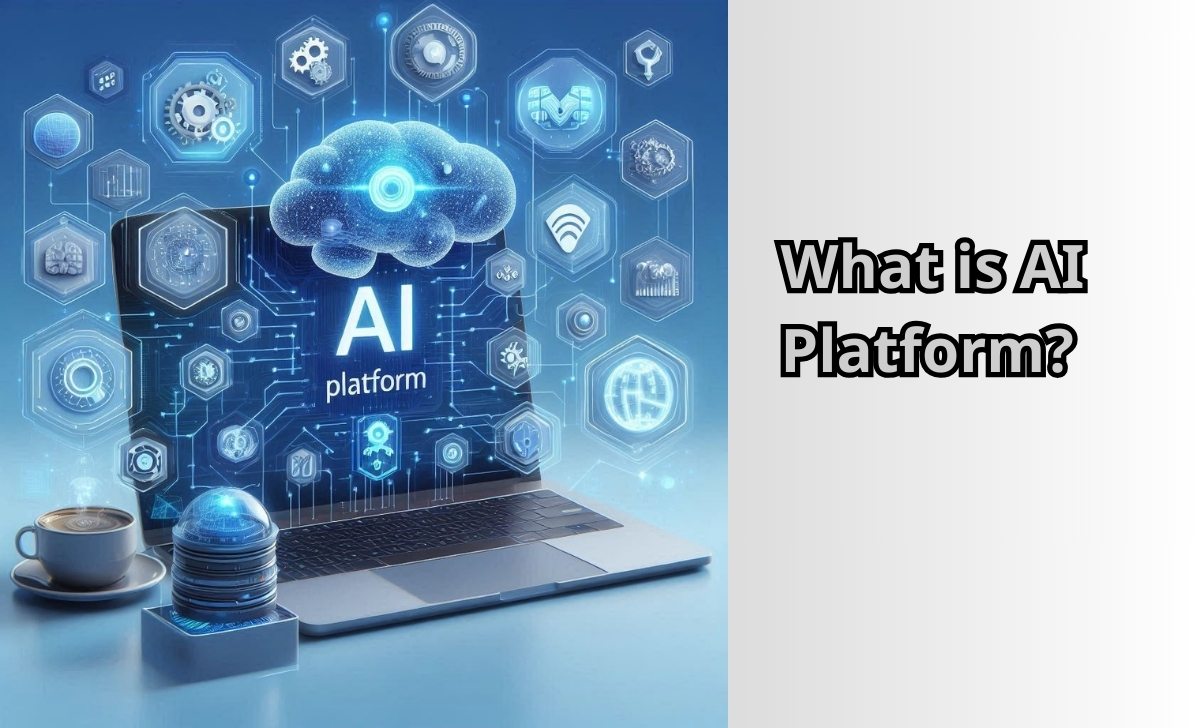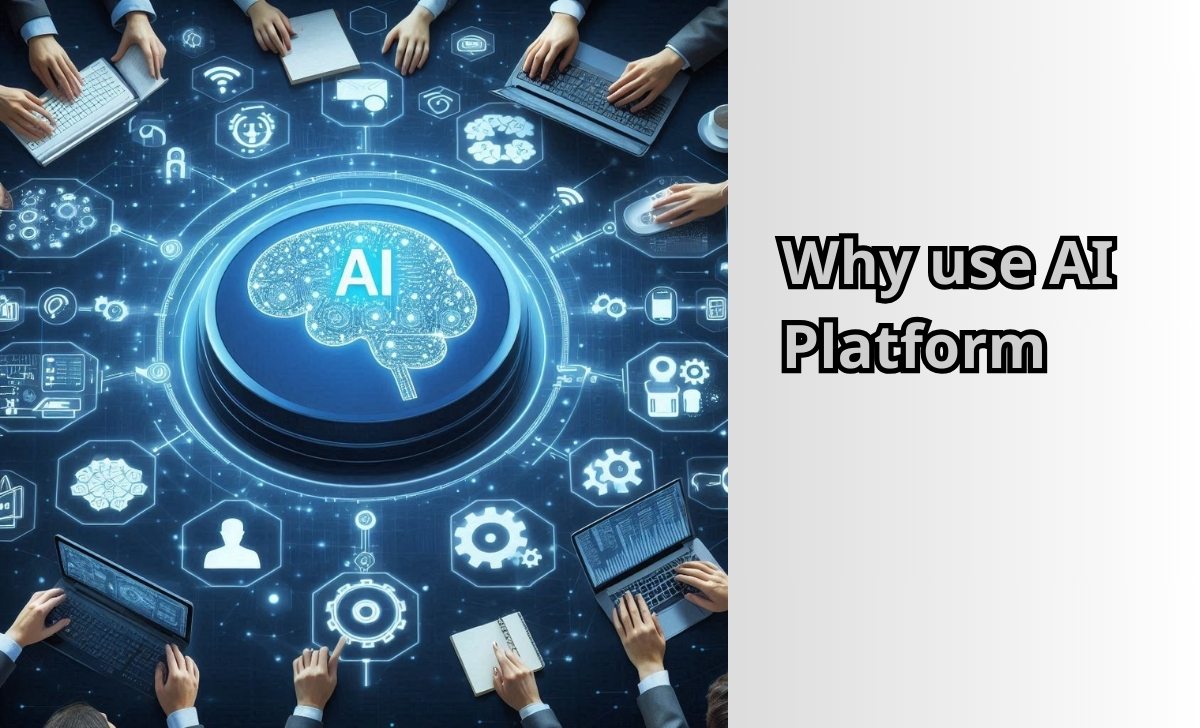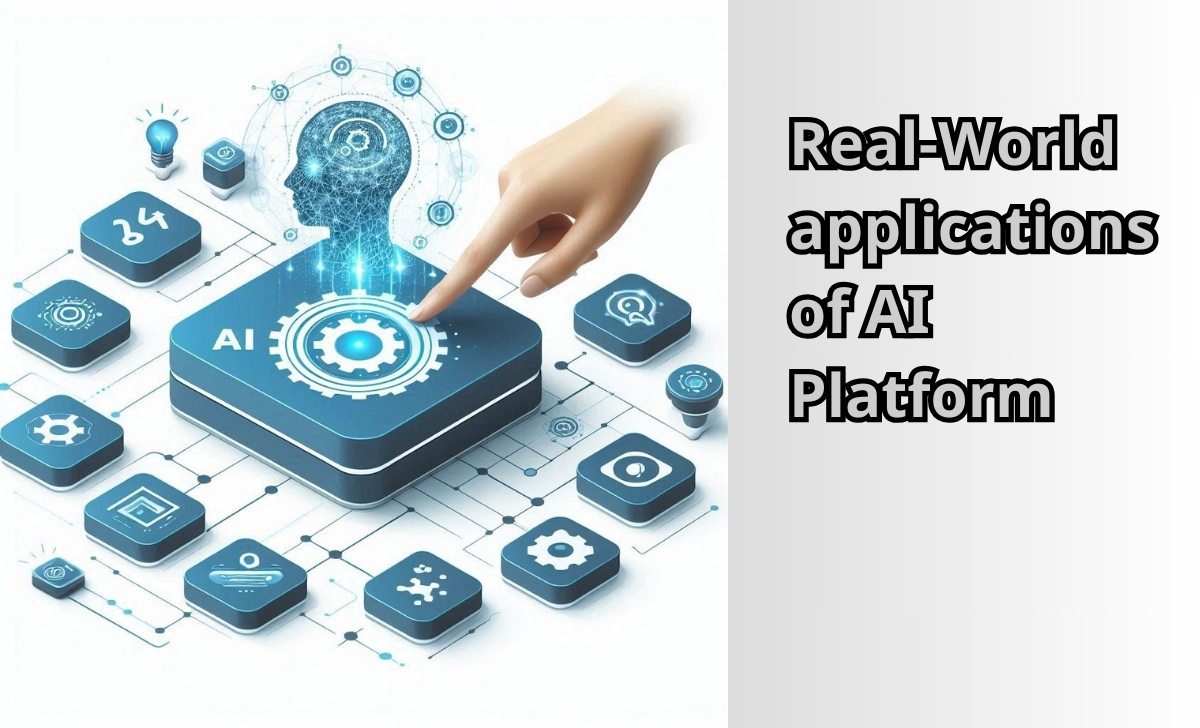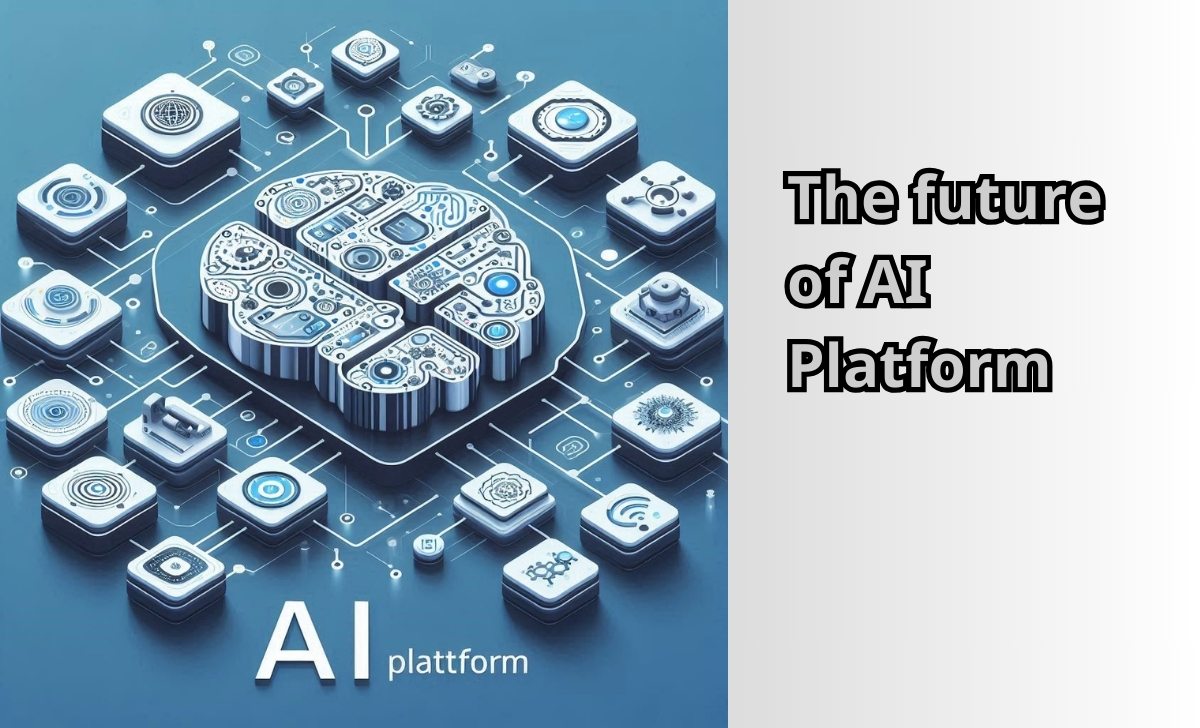AI Platform is a system that provides the necessary tools and services to build, train, and deploy AI models. This platform makes developing AI applications easier and faster than ever before.
So, what exactly are the standout features of AI Platform and why should businesses use it? Let’s dive into the details with AZCoin in the article below!
What is AI Platform?

AI Platform is an integrated system that offers the necessary tools, services, and environments to develop, deploy, and manage artificial intelligence applications. These platforms typically include services for machine learning, natural language processing, big data analytics, and other AI technologies.
The goal of AI Platform is to reduce the complexity of building AI solutions and make it easier for developers, data scientists, and organizations to integrate AI into their processes and applications.
Popular Types of AI Platforms
Cloud AI Platforms
- AWS AI: Amazon Web Services (AWS) offers a range of AI and machine learning services, including Amazon SageMaker for building, training, and deploying machine learning models.
- Google AI: Google Cloud AI provides powerful tools like TensorFlow and AutoML to develop and deploy artificial intelligence applications.
- Azure AI: Microsoft Azure offers AI services including Azure Machine Learning and advanced data analytics tools.
On-Premises AI Platforms
On-premises AI platforms allow organizations to deploy AI solutions on their internal infrastructure, providing greater control over security and privacy. For example, NVIDIA AI Enterprise is a popular on-premises solution.
Open source AI Platforms
- TensorFlow: Developed by Google, TensorFlow is a popular open-source platform for machine learning, and deep learning.
- PyTorch: Developed by Facebook, PyTorch is renowned in the AI research community for its flexibility and ease of use.
- Apache MXNet: Another open-source platform that offers scalability and high performance for machine learning.
Why use AI Platform

Using an AI Platform offers several significant benefits:
- Time and Cost Savings: AI platforms provide pre-optimized tools and services, reducing development time and costs associated with building and maintaining AI solutions from scratch.
- Scalability and Performance: AI platforms often offer easy scalability and optimized performance, allowing organizations to scale their AI applications as needed without investing in new hardware infrastructure.
- Support and Community: Popular AI platforms typically have a large developer community and good technical support, helping users resolve technical issues and optimize the use of technology.
- Algorithm Support: AI platforms support advanced Upstart algorithms, enabling smarter lending decisions through machine learning and data-driven insights.
Advantages and disadvantages of using AI Platform
Advantages
- High Performance: AI platforms are typically designed to optimize performance, reducing model training time and improving analytical outcomes.
- Integration Capabilities: AI platforms easily integrate with existing systems and tools, making it easier for organizations to deploy and use AI solutions.
- Supportive Community: With the strong growth of open-source communities and technical support from service providers, users can easily get help when encountering issues.
Disadvantages
- Cost: Although AI platforms can help save on development costs, using cloud services or commercial software can still result in significant expenses, especially on a large scale.
- Security and Privacy: When using cloud-based AI platforms, security and privacy issues can become critical, particularly when dealing with sensitive data.
- Compatibility: Sometimes, integrating AI platforms with existing systems and applications can face compatibility issues and require adjustments.
Real-World applications of AI Platform

The AI Platform is not just a tool for developing and deploying artificial intelligence; it plays a crucial role in various industries and fields. Here are some notable real-world applications of AI Platform:
Financial industry
- Market Analysis and Prediction: AI Platform helps analyze vast amounts of financial data, detect patterns, and predict market trends. Financial companies use AI to make smarter investment decisions and manage risks more effectively.
- Fraud Detection: AI platforms can analyze transactions and identify unusual behavior to detect and prevent financial fraud, from credit card fraud to stock market transactions. To trade safely, refer to the list of the best crypto exchanges 2024 here.
- Customer Service: AI platforms offer chatbot and virtual assistant tools, providing 24/7 customer service, handling requests, and resolving issues quickly and efficiently.
Healthcare industry
- Diagnosis and Medical Image Analysis: AI platforms support the analysis of medical images such as MRIs, CT scans, and X-rays to detect early signs of diseases, from cancer to cardiovascular conditions, improving diagnosis accuracy and speed.
- Personalized Medicine: AI analyzes data from patient records to create personalized treatment plans tailored to individual patient needs and health characteristics.
- Disease Prediction and Prevention: AI platforms use big data to predict disease risks and suggest preventive or early intervention measures.
Retail industry
- Inventory Management: AI helps predict consumer demand and optimize inventory management, allowing businesses to maintain appropriate stock levels and reduce waste.
- Enhancing Customer Experience: AI platforms provide tools for analyzing customer behavior, personalizing product recommendations, and improving both online and in-store shopping experiences.
- Market Trend Prediction: AI helps analyze market data to identify new trends, enabling businesses to adjust marketing strategies and develop products according to current consumer trends.
Manufacturing industry
- Predictive Maintenance: AI platforms analyze data from sensors and machine monitoring systems to predict and prevent breakdowns before they occur, minimizing downtime and maintenance costs.
- Optimizing Production Processes: AI helps optimize production processes through operational data analysis, thereby improving efficiency and product quality.
Transportation industry
- Smart Traffic Management: AI assists in managing intelligent traffic systems, from traffic light control to traffic condition prediction, helping reduce congestion and improve flow.
- Autonomous Vehicles: AI platforms provide the necessary technologies for self-driving cars, including object recognition, navigation, and real-time decision-making.
Education industry
- Personalized Learning: AI platforms help create personalized learning experiences, from recommending suitable learning content to tracking students’ progress and learning effectiveness.
- Automating Classroom Management: AI helps automate classroom management tasks, from automatic grading to generating learning reports.
The future of AI Platform

The future of AI platforms promises robust growth with trends like integrating AI into everyday applications and services, improving machine learning and deep learning capabilities, and enhancing security and privacy features. Continuous innovation in technology will create increasingly intelligent and flexible AI platforms, serving the growing needs of organizations and businesses worldwide.
Conclusion
In summary, AI platforms play a crucial role in developing and deploying artificial intelligence solutions, providing the necessary tools and services to optimize performance and reduce costs. AZcoin hopes this article has helped you gain a better understanding and that you can effectively leverage it in your daily life!

I’m Jessi Lee, currently living in Singapore. I am currently working as a trader for AZCoin company, with 5 years of experience in the cryptocurrency market, I hope to bring you useful information and knowledge about virtual currency investment.
Email: [email protected]











